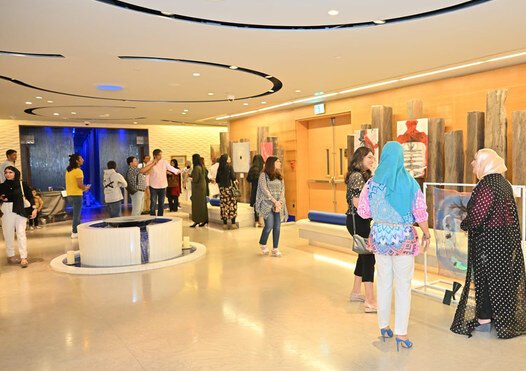Muhammad Anwar-ul- Haq
The scientific study of beekeeping known as apiculture and this science is actually the caring of bee colonies to produce beneficial products, such as honey and beeswax. The products obtain from the beneficial insects has commercial value in medicine and as energy boosting compound throughout the world. The attention of beekeeping, has a rich and striking history that life spans consist of thousands of years. From the day of primordial civilizations to recent age of modern-day the people are taking interest in beekeeping and caring at commercial level. The progressive development in the field of apiculture has been molded into recent technological advancements at national and global standard. The deep interaction has been industrialized to produce honey in such apiculture methodology to fulfill the demand of societal needs of honey according to the variability of environmental factors in the country. The wooden logs or clay hives was/are used in the production of honeybee from the day relating to ancient human societies up till now. The period of ancient origins from 3000 BCE – 500 CE had various evidences of beekeeping practices dates back to ancient Egypt, Greece, and Rome. it was primarily practiced for honey production, with bees kept in various wooden boxes and mud hives. The ancient civilizations recognized the importance of bees in pollination and ecosystem health. The Medieval Period (500 – 1500 CE) such practices had spread throughout Europe during the Middle Ages and monasteries played a significant role in promoting beekeeping and developing new technologies. The honey was used as a form of currency, and beeswax was used for candle-making and art. In addition, the Renaissance and Enlightenment (1500 – 1800 CE) has advances in bee biology and hive design led to improved beekeeping practices. The development of movable-frame hives by Rev. L.L. Langstroth in 1851 revolutionized commercial beekeeping. The Apiculture became a significant industry, with honey and beeswax production increasing globally. The modern Apiculture consists of (1800 – present), the discovery of the honey bee’s social structure and communication methods led to improved beekeeping practices. The development of new hive designs, such as the Langstroth hive, and equipment, like extractors and smokers, increased efficiency and productivity and commercial beekeeping expanded globally, with a focus on honey production, pollination services, and queen bee breeding. The significant societal Impact in the age of human beings was/is very vital foe humanoid health. The Apiculture has played a significant role in human history, providing food, medicine, and economic opportunities. The Beekeeping has been an important part of many cultures, with bees often revered as sacred animals. it is a serious concern for public and private sector organizations in the Pakistan as wells the world, the decline of bee populations due to colony collapse disorder (CCD) and other environmental factors has raised apprehensions about food security and ecosystem health. Finally, it is concluded that the historical evolution of apiculture is a rich and complex narrative that reflects human innovation, societal needs, and environmental factors. From ancient origins to modern-day commercial beekeeping, apiculture has played a significant role in shaping human history and culture. As we move forward, it is essential to recognize the importance of apiculture and work towards sustainable beekeeping practices that prioritize bee health, ecosystem balance, and human well-being. It is need of time the government promote, support and introducing the mini apiculture projects in the youth to earn the money for their livelihood and they contribute in the production of honey for the demand of the population of Pakistan and fulfilled the need of the pharmaceuticals industry as an ingredient of medicine.
The Author is M. Phil. Scholar in Zoology Department of Zoology Emersion University Multan.






 Today's E-Paper
Today's E-Paper